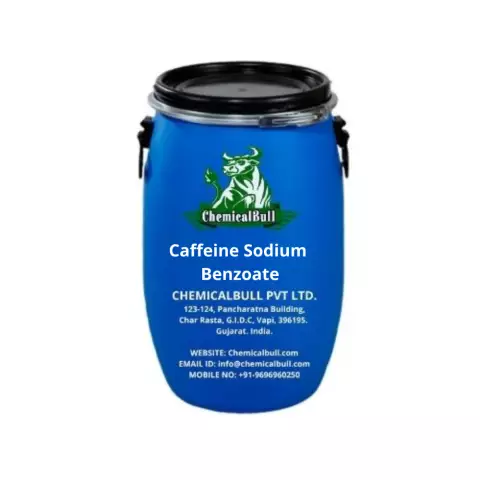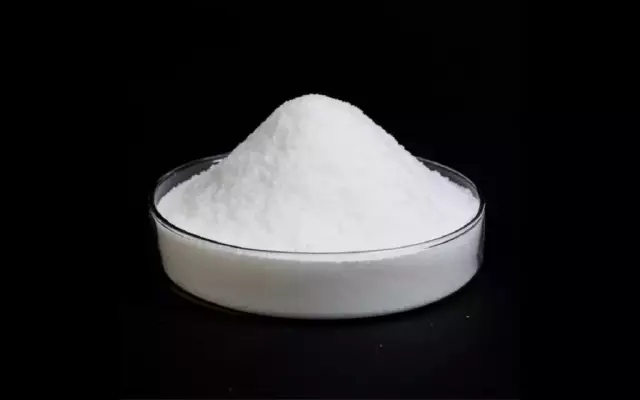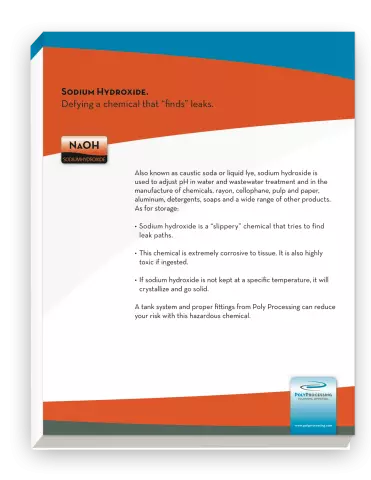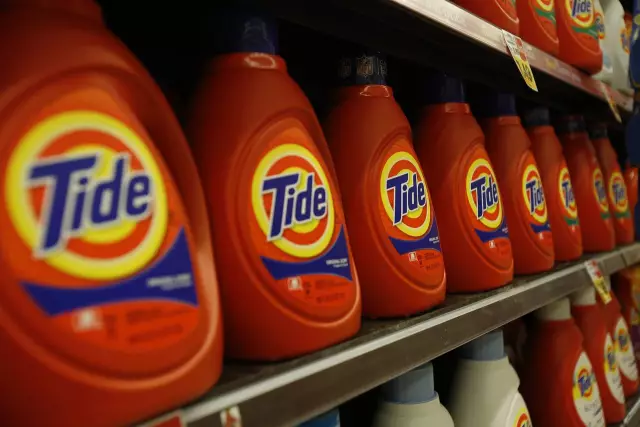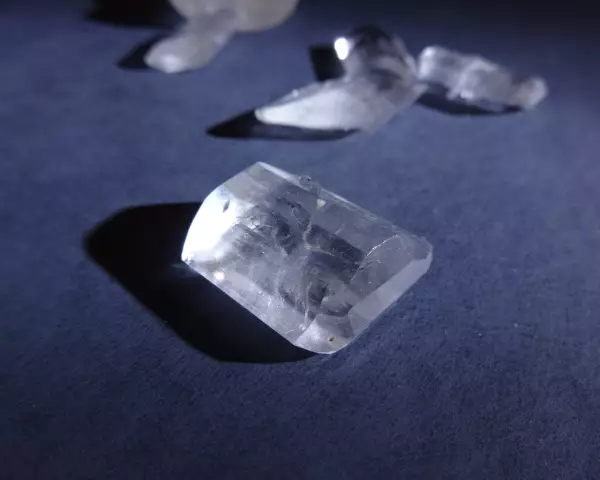- Author Rachel Wainwright wainwright@abchealthonline.com.
- Public 2023-12-15 07:39.
- Last modified 2025-11-02 20:14.
Caffeine sodium benzoate
Instructions for use:
- 1. Pharmacological action
- 2. Release form
- 3. Indications for use
- 4. Instructions for use
- 5. Side effects
- 6. Contraindications to use

Caffeine sodium benzoate is an agent that stimulates the nervous system.
pharmachologic effect
Caffeine sodium benzoate has a direct stimulating effect on the cerebral cortex, stimulates the respiratory, vasomotor centers of the medulla oblongata, enhances reflexes, provides interneuronal conduction in the spinal cord, increases motor activity, activates mental activity, eliminates drowsiness, and helps to cope with fatigue.
The drug in small doses stimulates the nervous system, and in high doses it can be harmful - sodium benzoate with caffeine can have a depressing effect on the nervous system.
Under the influence of the cardiac and vascular mechanisms of the influence of caffeine, blood pressure changes: if the pressure is normal, the drug increases it slightly or does not affect it at all, and if the pressure is lowered, caffeine increases it.
It is also noted that caffeine stimulates the production of gastric juice, has a diuretic effect, and reduces platelet aggregation.
Release form
Caffeine sodium benzoate tablets are produced.
Indications for use
Sodium benzoate according to the instructions is indicated for: increased drowsiness, headaches caused by vascular pathologies, incl. migraines, moderate hypotension, decreased physical and mental performance.
Instructions for the use of Caffeine sodium benzoate
Caffeine tablets can be taken with or without food throughout the day. It is better not to take caffeine before going to bed. insomnia may occur.
To increase efficiency, eliminate drowsiness in children after 12 years. and adults are given 50-100 mg of the drug two or three times a day. The treatment can last for several weeks or months.
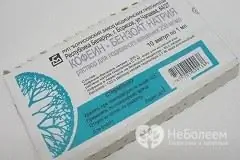
For the treatment of headaches in children after 12 years. and adults are shown to take 50-100 mg of the drug two or three times a day for several days.
For the treatment of unexpressed arterial hypotension in children after 12 years, adults are prescribed to take 50-100mg 2-3r / day. Treatment for low blood pressure lasts for several weeks.
During therapy, it should be borne in mind that the maximum permissible single dosage of sodium benzoate is 300 mg, and the daily dosage is 1000 mg.
Side effects
The harm of sodium benzoate with caffeine is that the drug, in case of intolerance or non-compliance with medical recommendations for use, can cause anxiety, anxiety, psychomotor agitation, headaches, epileptic seizures, dizziness, tachypnea, insomnia, exacerbation of peptic ulcer disease, nausea, vomiting, nasal congestion, drug dependence, tachycardia, increased blood pressure.
A sudden withdrawal of caffeine can lead to muscle tension, inhibition of the nervous system, increased fatigue, and drowsiness.
An overdose of the drug is possible, which is expressed by increased anxiety, abdominal pain, confusion, dehydration, arrhythmia, hyperthermia, headaches, agitation, frequent urination, trembling, muscle twitching, nausea, vomiting with blood, convulsions, ringing in the ears.
The harm of sodium benzoate with caffeine is manifested already when consumed at a dose of more than 300 mg / day: headaches, tremors, confusion, extrasystole, and anxiety may appear.
An overdose is treated by gastric lavage, the use of laxatives, activated carbon. If the patient has hemorrhagic gastritis, antacid drugs are administered to him and the stomach is washed with a 0.9% sodium chloride solution, and artificial lung ventilation is maintained. If convulsions occur during an overdose, diazepam, phenytoin, phenobarbital are administered intravenously, and the water-electrolyte balance is maintained.
Contraindications to the use of sodium benzoate
According to the instructions, sodium benzoate is contraindicated in anxiety disorders, cardiovascular diseases of an organic nature, with hypersensitivity to the drug, paroxysmal tachycardia, ventricular extrasystole, hypertension, sleep disorders, children under 12 years old.
Caution is prescribed for sodium benzoate caffeine tablets in old age, with glaucoma, epilepsy and a tendency to seizures.
Taking caffeine for lactating, pregnant women is allowed only for special indications.
During treatment, it should be borne in mind that the simultaneous use of caffeine with oral contraceptives, ciprofloxacin, disulfiram, norfloxacin, cimetidine can lead to a slow excretion of caffeine by the liver and an increase in its level in the blood. The drug in combination with drinks and medications containing caffeine can overstimulate the nervous system.
It should also be borne in mind that the substance mexiletine impairs the excretion of caffeine, and nicotine increases it. Caffeine, in turn, impairs the absorption of calcium in the gastrointestinal tract, reduces the effectiveness of hypnotics, narcotics, accelerates the absorption of cardiac glycosides, and increases the excretion of lithium in the urine.
Information about the drug is generalized, provided for informational purposes only and does not replace the official instructions. Self-medication is hazardous to health!

